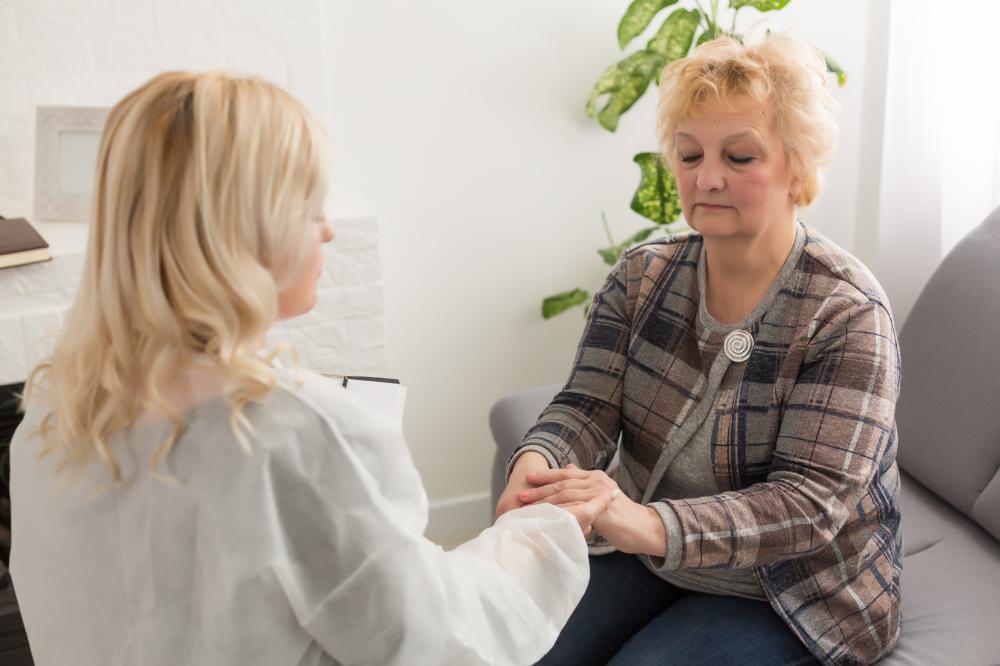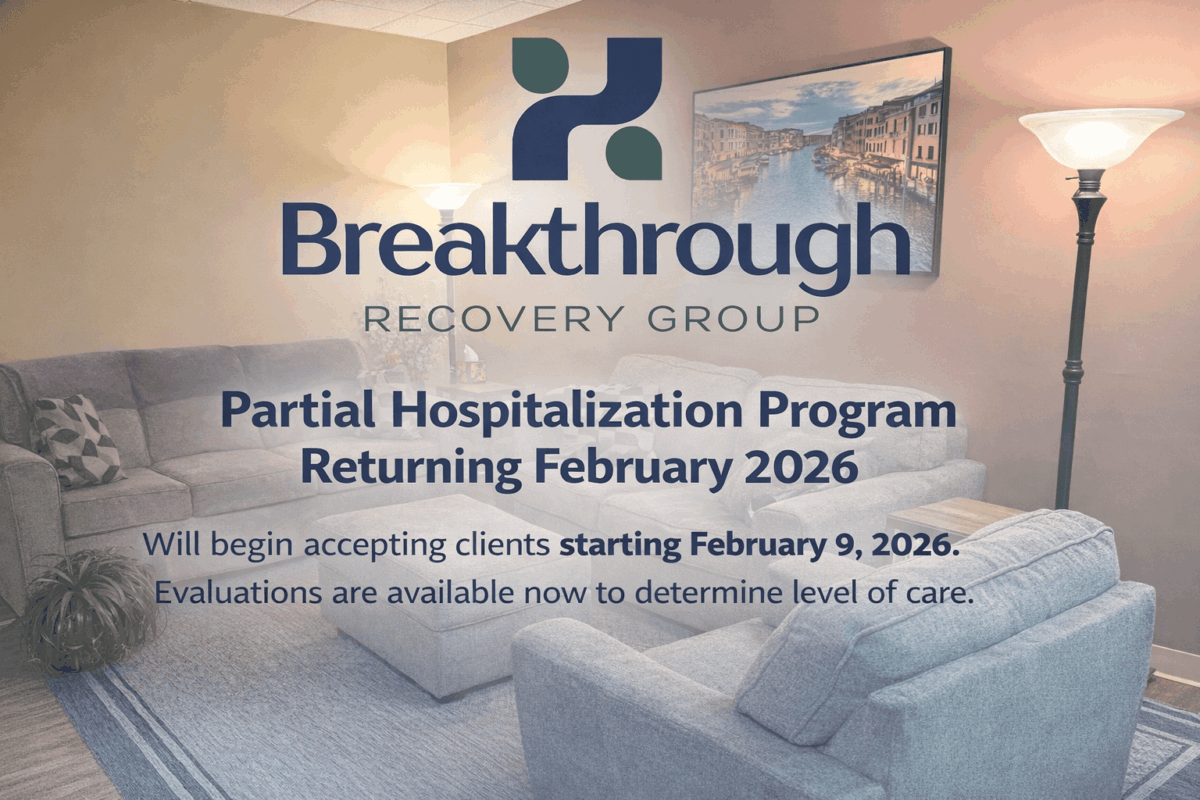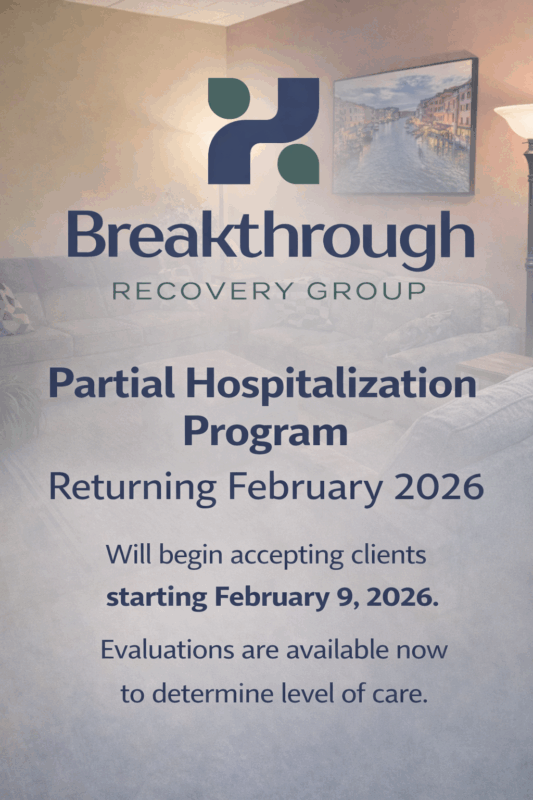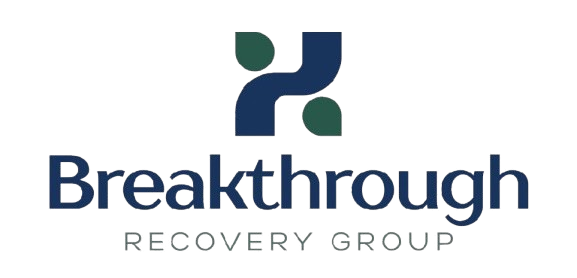
Spokant’s Best Outpatient Treatment Options
When considering outpatient treatment Spokane offers, it’s vital to recognize the diversity in available programs. Unlike inpatient care, outpatient services provide flexibility, allowing individuals to maintain daily responsibilities while receiving treatment. This approach can be particularly beneficial for those with supportive home environments, enabling them to integrate therapy into their everyday lives.
Outpatient programs range from intensive services that require a commitment of several hours per week to more flexible arrangements. These programs are designed to cater to various needs, whether someone is transitioning from inpatient care or managing a less severe condition. The focus is on empowering individuals through self-awareness and coping strategies, offering a broader spectrum of treatment possibilities.
Benefits of Intensive Outpatient Programs
Intensive outpatient programs (IOPs) are a popular choice within outpatient treatment Spokane has to offer, providing an effective middle ground between inpatient services and standard outpatient care. IOPs are structured to offer comprehensive treatment, including group therapy, individual counseling, and educational sessions, spread over multiple weekly sessions. This structure facilitates a supportive community environment, fostering peer connections that bolster recovery.
The flexible nature of IOPs allows participants to engage fully in therapy while fulfilling personal and professional commitments. By receiving consistent therapeutic support, individuals can practice skills in real-world settings, enhancing the application of learned strategies. Many find this blend of accountability and autonomy crucial in maintaining progress and achieving long-term recovery goals.
Tailoring Treatment to Individual Needs
At BTRG Spokane, a key component of outpatient treatment is personalized care. Each client’s journey is unique, and so are the challenges they face. By leveraging a bespoke approach, therapists can address specific concerns, from addiction and trauma to relationship issues. This attention to individual circumstances ensures that therapeutic interventions resonate personally, promoting more meaningful progress.
Collaboration between client and therapist plays a critical role in this process. By working together to develop a treatment plan, both parties can identify goals and expectations, crafting a path that aligns with the client’s values and aspirations. This collaborative spirit not only enhances treatment efficacy but also empowers clients, instilling confidence and a sense of ownership over their recovery journey.
The Role of Evidence-Based Practices
Evidence-based practices (EBPs) are at the heart of BTRG Spokane’s outpatient treatment strategies, ensuring that interventions are grounded in research and proven methodologies. Approaches such as cognitive-behavioral therapy (CBT) and dialectical behavior therapy (DBT) form the backbone of many programs, providing clients with tools to manage thoughts, emotions, and behaviors effectively.
The commitment to EBPs reflects a dedication to offering the highest standard of care, continually updated to align with the latest scientific findings. By integrating these practices into therapy, BTRG Spokane helps clients gain greater insight into their challenges, equipping them with skills to foster resilience and sustain long-term well-being. This approach underscores the value of combining experience and expertise in supporting transformative experiences.
Holistic Approaches to Recovery
Outpatient treatment Spokane options increasingly incorporate holistic elements, recognizing the importance of addressing the whole person in recovery. At BTRG Spokane, therapies may include mindfulness, yoga, or art therapy, aiming to enhance physical, emotional, and spiritual well-being. Such practices complement traditional therapy, offering additional pathways to healing.
Holistic methods encourage clients to explore alternative expressions and insights, fostering a deeper connection with themselves and their surroundings. This integrative approach broadens the scope of recovery, helping individuals to balance their internal and external worlds. By supporting holistic wellness, BTRG Spokane nurtures an environment where clients can explore diverse methodologies in their pursuit of greater life satisfaction.
Navigating Life Transitions Through Therapy
Life transitions, whether anticipated or sudden, can present significant emotional challenges. Outpatient treatment Spokane from BTRG Spokane is designed to support individuals through such pivotal moments, offering guidance and reassurance. Whether facing career changes, relationship shifts, or personal growth spurts, therapy provides a space to process and adapt.
Therapists work with clients to identify coping mechanisms that align with their values, providing a scaffold for navigating uncertainty. The goal is to empower individuals with skills that promote resilience and adaptability, transforming challenges into opportunities for personal development. This support is invaluable, helping clients to forge a path through life’s inevitable changes with confidence.
Addressing Mental Health and Addiction
BTRG Spokane’s outpatient treatment effectively addresses both mental health and addiction concerns, understanding their often-interconnected nature. By treating co-occurring disorders simultaneously, clients receive a comprehensive care plan that enhances recovery outcomes. This dual-focus is crucial, as untreated mental health issues can undermine addiction recovery efforts, and vice versa.
Therapy sessions concentrate on unpacking the root causes of addiction and mental health struggles, allowing clients to gain control over their narratives. By leveraging therapeutic techniques tailored to these complex conditions, BTRG Spokane helps individuals break cycles of dependency and distress. This effective integration positions clients for sustainable recovery and enhanced quality of life.
The Importance of Community Support
Community support plays an essential role in the outpatient treatment Spokane residents can access through BTRG Spokane. Building a network of understanding and encouragement is integral to sustaining recovery outside the therapeutic environment. Clients are encouraged to participate in support groups, fostering connections with others who share similar experiences.
This sense of community extends beyond structured group therapy sessions, as clients often find kinship and mutual understanding in informal settings. Social support networks enhance accountability and provide an enduring sense of belonging, critical components in maintaining recovery. BTRG Spokane emphasizes the value of these connections, helping individuals to cultivate supportive relationships that reinforce their progress.
Overcoming Barriers to Accessing Care
For many individuals seeking outpatient treatment Spokane presents, accessibility can be a significant obstacle. BTRG Spokane prioritizes inclusivity, ensuring that therapy is available to diverse populations. This commitment involves addressing logistical challenges, such as providing flexible scheduling or offering teletherapy options to accommodate different lifestyles and needs.
Financial considerations are also crucial when accessing mental health services. BTRG Spokane works with clients to navigate insurance and payment plans, striving to minimize financial stressors that can deter individuals from seeking care. By focusing on reducing these barriers, BTRG Spokane helps to make therapy a realistic option for more people, ensuring that no one is excluded from the opportunity to improve their mental health.
Fostering Long-Term Resilience and Wellness
Ultimately, the goal of outpatient treatment Spokane through BTRG Spokane is to nurture long-term resilience and wellness, equipping clients with lifelong skills. The therapeutic journey is an ongoing process, with clients encouraged to continue engaging in self-care and personal development activities beyond their sessions. This forward-thinking approach prepares individuals to face future challenges with strength and clarity.
By instilling a mindset of growth and adaptability, BTRG Spokane helps clients transition from therapy to independent wellness. This empowerment is a testament to the transformative power of outpatient treatment, showing that with the right support and strategies, individuals can thrive beyond therapy. As clients embrace their newfound resilience, they not only enhance their own lives but also contribute positively to their communities.

Understanding the Variety of Outpatient Treatment Options Available in Spokane
Outpatient treatment in Spokane encompasses a wide range of services, but how do these options typically differ from each other? At BTRG Spokane, we understand that navigating the different types of outpatient programs can seem overwhelming at first. Essentially, the key difference lies in the intensity and frequency of sessions. For instance, a standard outpatient program might offer weekly therapy sessions, whereas an Intensive Outpatient Program (IOP) involves a more structured schedule with multiple sessions per week, focusing on more intensive therapeutic needs. This flexibility allows individuals to receive care tailored to the severity of their condition and their personal schedule. Each type of program is designed to balance therapeutic intervention with the ability to maintain daily responsibilities. A good starting point for anyone considering outpatient treatment is to assess personal needs and lifestyle constraints, perhaps even consulting with a healthcare professional to determine the best fit.
Benefits and Misconceptions About Intensive Outpatient Programs
Many people wonder if Intensive Outpatient Programs are truly as beneficial as advertised. A common misconception is that because they are outpatient, they are somehow less effective than inpatient programs. However, IOPs offered by BTRG Spokane are designed with a rigorous structure that supports deep therapeutic work while providing the flexibility for clients to meet personal and professional obligations. The strength of IOPs lies in their ability to integrate learned skills into daily life, promoting real-world application and immediate feedback. Research has shown that this blend of therapy and daily activity can significantly enhance recovery by not only treating symptoms but also fostering resilience and problem-solving in everyday settings. If you’re curious about whether an IOP could be suitable for you or a loved one, consider the level of support you currently have and your ability to manage day-to-day responsibilities while engaging in therapy.
Personalized Care in Outpatient Treatment
How exactly does personalized care in outpatient treatment benefit clients at BTRG Spokane? One of the most effective aspects of our approach is the collaboration between the therapist and the client. This personalized care means that therapy is not a one-size-fits-all process. By focusing on individual needs, therapists can address specific challenges such as trauma, addiction, or relationship issues with targeted interventions. Imagine it as having a tailor-made suit versus an off-the-rack one; the personalized care fits your unique contours and aims at achieving the best outcomes for your personal journey. Clients are active participants in their treatment planning, setting goals that align with their values and aspirations. Such collaboration not only boosts engagement but also empowers clients to take charge of their recovery, fostering a sense of ownership and confidence in their progress. Have you ever considered how being a co-designer of your therapy could enhance your personal growth?
Importance of Evidence-Based Practices in Therapy
Why are evidence-based practices crucial in the treatment approach at BTRG Spokane? Simply put, they ensure that the therapeutic interventions have a robust foundation in scientific research and proven methodologies. Approaches like Cognitive Behavioral Therapy (CBT) and Dialectical Behavior Therapy (DBT) are central to our treatments because they provide clients with practical tools to manage thoughts, emotions, and behaviors. This isn’t just about following a trend; it’s about accountability and effectiveness. By relying on methods that are continually updated with the latest findings, we ensure our clients receive care that is both innovative and reliable. For instance, a person struggling with anxiety may use CBT techniques to challenge and change cognitive distortions and behaviors, which can lead to measurable improvements in daily life. When choosing therapy options, consider the value of treatments backed by solid research–how important is it for you that your treatment plan is grounded in such practices?
Integrating Holistic Methods into Recovery
What role do holistic methods play in recovery at BTRG Spokane? The integration of holistic approaches recognizes that recovery encompasses more than just mental health; it involves the whole person. Practices such as mindfulness, yoga, or art therapy complement traditional therapy by enhancing physical, emotional, and spiritual well-being. These methods allow clients to explore alternative expressions and connections with themselves and their environments. For example, incorporating mindfulness techniques might help an individual become more aware of their triggers, providing them with the ability to respond rather than react impulsively. The holistic approach at BTRG Spokane broadens the scope of recovery, offering additional pathways to healing that many clients find enriching and personally fulfilling. As you think about your own or a loved one’s path to recovery, consider how these holistic elements might contribute to a more balanced and satisfying therapeutic experience.
Supporting Life Transitions with Therapy
How can therapy assist with life transitions? At BTRG Spokane, we recognize that life’s changes can often bring about emotional challenges. Whether it’s a career change, a shift in personal relationships, or even a significant personal milestone, these transitions can be unsettling. Therapy provides a space to process these changes, offering support and helping clients develop coping mechanisms that align with their personal values. For instance, someone going through a divorce might work with a therapist to explore feelings of loss and identity, gaining tools to manage these emotions and emerge stronger. Our therapists aim to empower clients to face life’s uncertainties with resilience, transforming challenges into opportunities for growth. Have you experienced a life transition that could have benefitted from some therapeutic guidance?
Addressing Co-Occurring Disorders Effectively
How does BTRG Spokane approach the treatment of co-occurring mental health and addiction disorders? We understand that these conditions often influence one another, and treating them simultaneously is crucial for effective recovery. Our integrated approach focuses on uncovering the root causes of both mental health struggles and addiction, offering a comprehensive care plan. For example, if depression is contributing to substance abuse, our treatment will address both the symptoms of depression and the behaviors associated with addiction. This dual-focus helps prevent the undermining of recovery efforts, supporting a path to sustainable health and wellbeing. If you’re considering treatment, think about how a program that addresses both aspects of your health might offer a more complete recovery pathway.
Emphasizing the Role of Community Support in Recovery
What makes community support a vital component of recovery at BTRG Spokane? Recovery is not a solitary journey, and the sense of community plays a pivotal role in sustaining progress. Clients are encouraged to join support groups and form connections with others who share similar experiences. This community aspect extends beyond structured therapy sessions, fostering relationships that provide accountability and a sense of belonging. Imagine someone navigating recovery alone versus someone who has a network of understanding peers; the latter is more likely to experience long-term success. These social connections help reinforce the therapeutic gains made in individual sessions, creating a robust recovery support system. When thinking about recovery, consider how building a supportive community could enhance and sustain your progress.
Overcoming Challenges to Accessing Treatment
Many people face barriers when accessing outpatient treatment, so how does BTRG Spokane address these challenges? Accessibility is a priority for us, and we’ve adopted several strategies to accommodate diverse needs. This includes flexible scheduling and teletherapy options to cater to those with varied lifestyles or geographical limitations. Additionally, financial considerations cannot be ignored, and we assist clients in navigating insurance and payment plans to ease financial burdens. This commitment to inclusivity aims to make therapy a reachable option for everyone, ensuring that no one is left without the opportunity for healing. If you’re facing obstacles to accessing care, consider reaching out to discuss options that could make therapy more accessible for you.
Fostering Long-Term Wellness and Resilience Beyond Therapy
What does BTRG Spokane do to ensure that clients maintain wellness and resilience after therapy? Our goal is to equip clients with skills they can use throughout their lives. Therapy is a stepping stone to a longer journey of self-care and growth. We emphasize the importance of continuing personal development and self-care practices even after therapy sessions have concluded. For instance, a client might learn stress management techniques in therapy and then continue to apply these in daily life to handle future stressors. This ongoing process helps clients transition to independent wellness, building resilience to life’s challenges. As you consider therapy, think about how the skills and strategies you learn could continue to benefit you long after your sessions end.
Resources
- Substance Abuse and Mental Health Services Administration (SAMHSA) – SAMHSA is a government organization that leads public health efforts to advance the behavioral health of the nation.
- American Psychiatric Association (APA) – The APA is a professional organization representing psychiatrists in the United States, working to ensure humane care and effective treatment for all persons with mental illness.
- National Institutes of Health (NIH) – The NIH is the primary agency for conducting and supporting medical research, making important discoveries that improve health and save lives.
- National Alliance on Mental Illness (NAMI) – NAMI is the largest grassroots mental health organization in the United States, providing education and support for individuals and families affected by mental illness.
- Centers for Disease Control and Prevention (CDC) – The CDC is a national public health institute working to protect America from health, safety, and security threats.






